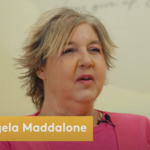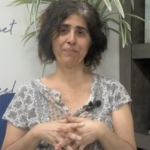Medically Reviewed by: Dr. Bautista
Our Editorial Policy
Updated on: November 16, 2019
About Appendix Cancer
The appendix is a 4-inch long pouch attached to the first section of the large intestine. While it is considered part of the gastrointestinal tract, the appendix is not believed to serve any significant function in the body.
With appendix cancer, healthy cells in the appendix begin to grow out of control, forming large cysts or tumors. This form of cancer is highly uncommon and accounts for only about 0.5 percent of all solid tumors of the gastrointestinal tract. The most common appendix cancer type in patients is known as a neuroendocrine tumor (NET). These make up about half of all appendix cancer diagnoses and are more common in women in their 40s. Neuroendocrine tumor cells are responsible for producing hormones and usually come after the appendix has been removed.
Causes and Risk Factors
Appendix cancer comes as a result of genetic mutations that cause cancer cells within the appendix to grow out of control, forming cysts and tumors that may spread to other parts of the body. The specific cause of this genetic mutation is not known. There may be a hereditary element as a family history of appendix cancer is known to increase your own chances of developing appendix cancer.
Smoking is also a potential risk factor. Smokers have a higher risk of developing appendix cancer than non-smokers. Furthermore, certain health conditions may increase your risk of appendix cancer. This is mainly relegated to conditions that affect the stomach’s ability to produce digestive acids, including:
- Atrophic gastritis (long-term inflammation of the stomach lining)
- Pernicious anemia (vitamin B12 deficiencies)
- Zollinger-Ellison syndrome
Early Detection, Diagnosis, and Staging
An appendix tumor or usually does not present noticeable symptoms until it has progressed to more advanced stages. Symptoms may also vary from person to person. Common signs and symptoms of this disease include:
- Appendicitis
- Loss of appetite
- Ovarian masses
- Pain in the lower right area of the abdomen
- Sudden changes in bowel movements
- Bloating
- Indigestion
- Vomiting
- Acid reflux
- Hernias
Doctors may use blood and urine tests for cancer screening to determine the cancer type and the extent of the disease and determine the effectiveness of treatments. The doctor may also use a wide range of imaging tests, including MRIs, ultrasound, PET scans, and CT scans, as part of the diagnostic process.
With diagnosis from the cancer screening comes staging. The staging process is important for developing cancer care treatment plans and evaluating your treatment response. The stage of your appendix cancer mainly depends on the size of the tumor and its potential spread to other parts of the body. Appendix cancer stages are defined as:
- Localized (tumor is localized to the appendix, colon, rectum, small intestine, or large intestine)
- Regional (cancer cells have spread to nearby lymph nodes)
- Metastatic (cancer cells have spread to other parts of the body)
Carcinomas and carcinoid tumor types are staged differently, from stage 0 to IV with several sub-categories. Generally, this staging is based on whether the primary tumor can be removed via surgery and whether the tumor cells has spread to other parts of the body.
About Alternative/Natural Appendix Cancer Treatment
Traditional treatment options for appendix cancer usually involves regional or systematic chemotherapy, radiation therapy, or some form of surgery (usually an appendectomy). The effectiveness of treating cancer with these treatments can vary from patient to patient, but many of these traditional cancer treatments come with various side effects that can leave cancer patients physically depleted with an already weakened immune system.
This is where alternative cancer treatments come into play. These offer natural treatment ofptions to support your ongoing recovery while mitigating any potential negative side effects from traditional treatments.
Immunity Therapy Center offers a wide range of alternative, natural treatments for appendix cancer patients. Our team is dedicated to creating a personalized and patient-centric appendix cancer treatment plan based on your health and cancer progression. We don’t treat you as just mere medical records, but more like a person, and want to build a positive relationship through every step of the cancer care treatment process. If you want to learn more or schedule a free consultation, please contact us today.
Therapies we useAt Immunity Therapy Center, our goal is to provide objective, updated, and research-based information on all health-related topics. This article is based on scientific research and/or other scientific articles. All information has been fact-checked and reviewed by Dr. Carlos Bautista, a Board Certified Medical Doctor at Immunity Therapy Center. All information published on the site must undergo an extensive review process to ensure accuracy. This article contains trusted sources with all references hyperlinked for the reader's visibility.
Customized Care For the Body And The Mind
Discuss Your Custom Alternative Treatment Plan With Our Team Today
Hear from Our Patients
See why the Immunity Therapy Center is a trusted name for medical tourism and cancer treatment centers in Mexico.
Start Your Healing Journey with a FREE Consultation
At ITC, we understand the importance of feeling heard and supported. Fill out our form, to speak with one of our patient advocate in the next 24 hours to have a free consultation and guidance, creating a personalized treatment plan just for you. You’re not alone on your path to healing. We’re here to support you through every step!







